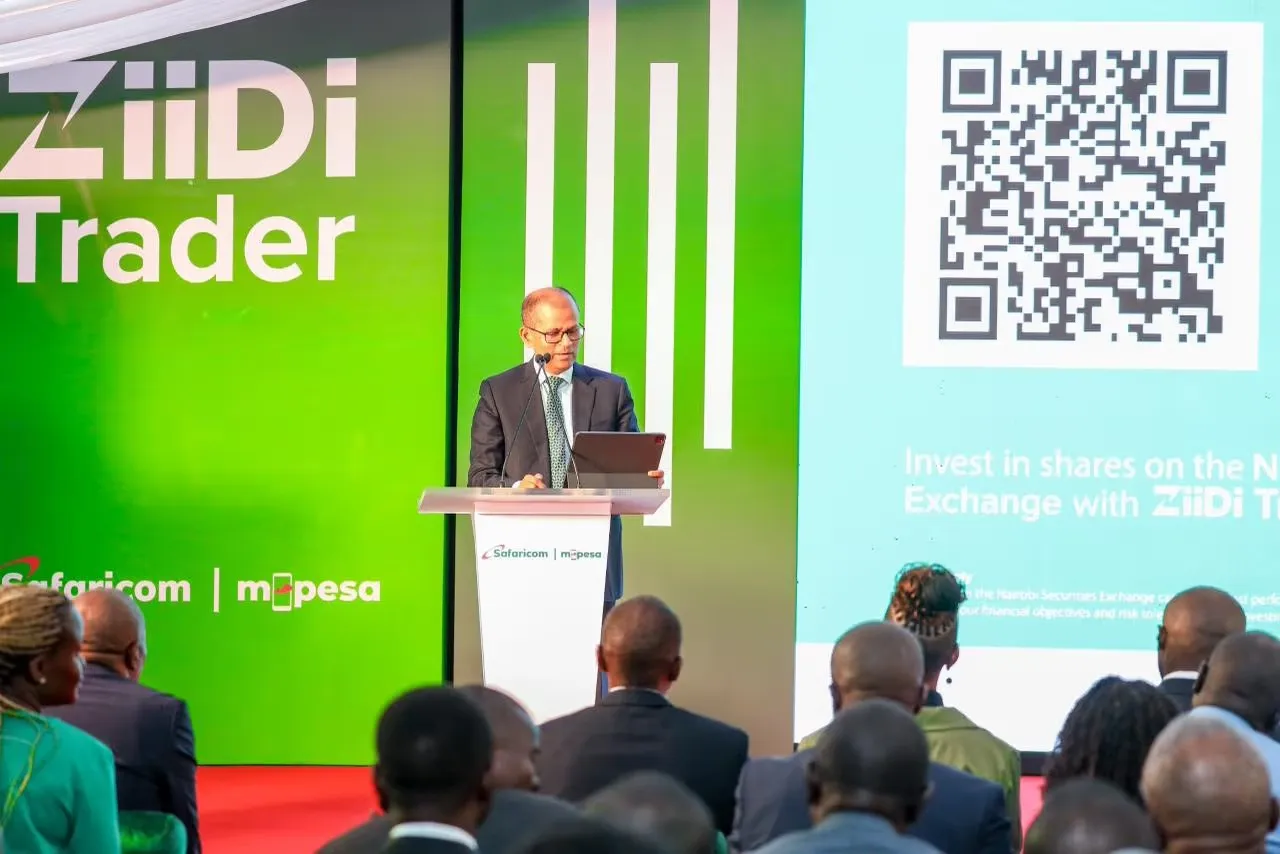South Africa’s digital retail revolution is gaining unstoppable momentum, with online sales projected to exceed 130 billion rand ($7.42 billion) this year, representing a transformative shift that will see e-commerce capture 10% of total retail sales across the nation. This remarkable growth trajectory, revealed in a comprehensive study by World Wide Worx in collaboration with Mastercard, Peach Payments, and Ask Afrika, underscores the fundamental transformation of South African consumer behavior and retail infrastructure.
The explosive growth builds on an already impressive 2024 performance, where online retail sales surged by approximately 35% to reach an estimated 96 billion rand, accounting for roughly 8% of all retail trade in South Africa. This acceleration reflects not just changing consumer preferences but also significant investments in digital infrastructure, logistics capabilities, and payment systems that have made online shopping more accessible and reliable for South African consumers.
Build the future you deserve. Get started with our top-tier Online courses: ACCA, HESI A2, ATI TEAS 7, HESI EXIT, NCLEX-RN, NCLEX-PN, and Financial Literacy. Let Serrari Ed guide your path to success. Enroll today.
Digital Infrastructure Revolution Drives Market Transformation
South Africa’s e-commerce boom is underpinned by substantial improvements in digital infrastructure and connectivity. The country’s telecommunications sector has invested billions in expanding 4G and 5G networks, while fiber optic coverage has improved significantly in urban areas. These infrastructure improvements have been crucial in enabling seamless online shopping experiences and supporting the logistics networks required for efficient e-commerce operations.
The South African Reserve Bank’s regulatory framework for digital payments has also facilitated growth by providing clear guidelines for fintech companies and traditional banks to develop innovative payment solutions. The adoption of contactless payments, mobile wallets, and buy-now-pay-later services has removed traditional barriers to online commerce, particularly among younger consumers.
Load shedding challenges initially posed significant obstacles to e-commerce growth, but retailers and logistics companies have adapted through investments in backup power systems and optimized delivery routes. Eskom’s gradual improvement in power supply reliability has further supported the sector’s expansion.
Grocery Retail Leads Digital Transformation
The fastest and most visible growth in South Africa’s online retail sector remains concentrated in grocery retail, where the shift to digital platforms has been dramatically accelerated by the widespread adoption of on-demand shopping applications. Market leader Shoprite, through its Checkers Sixty60 app, has established a commanding position in the online grocery market, leveraging its extensive store network to offer rapid delivery services.
Shoprite’s success has prompted aggressive responses from competitors Pick n Pay and Woolworths, both of which have invested heavily in their digital platforms and delivery infrastructure. Pick n Pay’s asap! service and Woolworths’ online platform have gained significant traction, creating a highly competitive environment that benefits consumers through improved service quality and competitive pricing.
The grocery e-commerce segment’s growth reflects fundamental changes in South African shopping patterns, particularly among urban consumers who value convenience and time-saving solutions. The COVID-19 pandemic initially catalyzed this shift, but the sustained growth demonstrates that online grocery shopping has become a permanent feature of the retail landscape.
Data from Statistics South Africa indicates that household spending on groceries through digital channels has increased by over 200% since 2020, with average order values rising as consumers become more comfortable making larger purchases online. The integration of loyalty programs and personalized marketing has further enhanced customer retention in this segment.
Fashion E-Commerce Experiences Sustained Growth
Online fashion sales represent another dynamic growth area, driven by retailers’ substantial investments in digital platforms and enhanced user experiences. South African fashion retailers have focused particularly on addressing historical pain points in online clothing purchases, including size and fit guidance, flexible return policies, and comprehensive product visualization tools.
Mr Price, Woolworths, and Foschini Group brands have all reported double-digit growth in their online fashion segments. These companies have invested in augmented reality fitting tools, detailed size guides, and customer review systems to reduce return rates and improve customer satisfaction.
Arthur Goldstuck, CEO of World Wide Worx, emphasized the structural nature of this transformation: “Online retail has moved from being an experiment on the margins to a structural force in the economy. Nearly one in every 10 rand spent at retail will now be online.” This shift represents a fundamental change in how South Africans approach shopping, with convenience, selection, and competitive pricing driving sustained adoption.
The fashion segment’s growth has also been supported by influencer marketing and social media integration, particularly on platforms like Instagram and TikTok, where South African brands have built substantial followings among younger consumers.
Global Giants Reshape Competitive Landscape
The arrival of international e-commerce giants has dramatically altered South Africa’s online retail competitive dynamics. Amazon entered the South African market in 2024 and has rapidly gained traction, now capturing 12.3% of online shoppers according to the World Wide Worx study. Amazon’s success reflects its global expertise in logistics, customer service, and platform usability, as well as its ability to offer competitive pricing on electronics and household goods.
However, Amazon faces significant competition from Chinese platforms Shein and Temu, which collectively hold 15.3% market share and occupy second place in the market. These platforms achieved remarkable growth between 2023 and 2024, reaching an estimated 7.3 billion rand in turnover and capturing almost 40% of online clothing sales.
Shein and Temu’s rapid expansion was initially facilitated by favorable tax treatment for low-value imports and their ability to offer ultra-competitive pricing direct from manufacturers. However, recent regulatory changes have moderated their growth trajectory. The South African government’s closure of tax loopholes, implementation of stricter customs enforcement, and the resilience of local retailers have created a more balanced competitive environment.
Despite these challenges, market leader Takealot continues to dominate with 31.9% market share, leveraging its extensive local presence, established logistics network, and deep understanding of South African consumer preferences. Takealot’s success demonstrates that local knowledge and infrastructure remain crucial competitive advantages in the e-commerce sector.
One decision can change your entire career. Take that step with our Online courses in ACCA, HESI A2, ATI TEAS 7, HESI EXIT, NCLEX-RN, NCLEX-PN, and Financial Literacy. Join Serrari Ed and start building your brighter future today.
Regulatory Environment and Tax Implications
South Africa’s regulatory response to the growth of international e-commerce platforms reflects broader concerns about tax revenue, local competition, and consumer protection. The South African Revenue Service (SARS) has implemented new measures to ensure that international online retailers collect VAT on sales to South African consumers, leveling the playing field with local retailers who have always been subject to these requirements.
The closure of the de minimis threshold for customs duties on low-value imports has particularly affected Chinese platforms that previously benefited from duty-free treatment on orders under R500. This regulatory change, while controversial among some consumers, has been welcomed by local retailers who argued that the previous system created unfair competitive disadvantages.
The Competition Commission of South Africa continues to monitor the e-commerce sector for anti-competitive practices, with particular attention to pricing strategies, exclusive dealing arrangements, and the use of customer data. Recent investigations have focused on ensuring that the rapid consolidation in online retail does not harm consumer welfare or stifle innovation.
Payment Systems and Financial Inclusion
The growth of online retail in South Africa has been significantly supported by innovations in payment systems and expanding financial inclusion. Mastercard’s collaboration in the World Wide Worx study reflects the company’s central role in facilitating e-commerce transactions through its payment processing infrastructure and fraud prevention systems.
Local payment processor Peach Payments has emerged as a key enabler of e-commerce growth, providing specialized payment solutions that cater to South African consumers’ preferences and banking relationships. The company’s focus on reducing transaction abandonment rates and supporting multiple payment methods has been crucial for retailers seeking to optimize their online conversion rates.
The adoption of Buy Now, Pay Later (BNPL) services has particularly resonated with South African consumers, with platforms like PayJustNow and PayFlex gaining significant traction. These services address affordability constraints that previously limited online shopping adoption, particularly among younger consumers and those with limited access to traditional credit.
Mobile money solutions and digital wallets have also contributed to e-commerce growth, with services like FNB’s eWallet and Capitec’s digital payment solutions reducing barriers to online transactions for unbanked and underbanked consumers.
Logistics Infrastructure and Last-Mile Delivery
The success of South Africa’s e-commerce boom has required substantial investments in logistics infrastructure and last-mile delivery capabilities. The Courier Guy, Fastway, and Dawn Wing have all expanded their operations significantly to meet growing demand for e-commerce deliveries.
South African Post Office (SAPO), despite facing financial challenges, remains an important player in e-commerce logistics, particularly for smaller retailers and consumers in rural areas. The parastatal’s extensive network of post offices provides collection points that are especially valuable in areas with limited street addresses or security concerns about home delivery.
The development of click-and-collect services has been particularly successful in South Africa, addressing concerns about delivery security and timing flexibility. Major retailers have invested in dedicated collection points, often integrated with their physical store networks, providing consumers with convenient alternatives to home delivery.
DHL and FedEx continue to handle international shipments and premium delivery services, while local couriers focus on domestic e-commerce fulfillment. The sector has also seen the emergence of crowd-sourced delivery platforms that leverage technology to optimize delivery routes and reduce costs.
Consumer Behavior and Demographic Trends
Research by Ask Afrika reveals significant demographic variations in online shopping adoption across South Africa. Urban consumers, particularly in Gauteng and the Western Cape, show the highest adoption rates, while rural areas lag due to infrastructure constraints and traditional shopping preferences.
Young consumers aged 18-35 represent the core demographic for online retail growth, demonstrating higher comfort levels with digital payments and mobile applications. However, older demographic groups are increasingly adopting online shopping, particularly for grocery and pharmacy purchases, indicating that the market’s growth potential extends across age groups.
Income levels remain a significant determinant of online shopping adoption, but the availability of budget-friendly platforms and payment flexibility options is gradually expanding access to lower-income consumers. The growth of second-hand and refurbished goods marketplaces has particularly resonated with price-conscious consumers.
Future Growth Projections and Market Maturation
Industry analysts project continued strong growth for South Africa’s online retail sector, with several factors supporting sustained expansion. The ongoing improvement in digital literacy, expanding smartphone penetration, and continued investment in e-commerce infrastructure provide a strong foundation for future growth.
However, the market is expected to mature gradually, with growth rates likely to moderate from the current exceptional levels as the sector reaches greater penetration. The focus is shifting from pure growth to profitability and operational efficiency, with retailers investing in advanced analytics, inventory optimization, and customer retention strategies.
The integration of omnichannel retail strategies represents a key growth opportunity, with successful retailers likely to be those that can seamlessly blend online and offline shopping experiences. Clicks, Dis-Chem, and other major retailers are investing heavily in these integrated approaches.
Conclusion: A Permanent Shift in Retail Landscape
South Africa’s online retail surge to an projected $7.42 billion in 2025 represents more than just impressive growth statistics—it signifies a fundamental and permanent transformation of the country’s retail landscape. The convergence of improved infrastructure, innovative payment solutions, competitive market dynamics, and changing consumer preferences has created an ecosystem that supports sustained e-commerce growth.
The success of local players like Takealot alongside the rapid expansion of international platforms demonstrates the market’s capacity to support multiple business models and competitive approaches. As regulatory frameworks evolve to ensure fair competition and tax compliance, the sector is expected to continue its robust growth while contributing increasingly to South Africa’s economic development and job creation.
For South African consumers, this transformation promises continued improvements in shopping convenience, product selection, and competitive pricing. For the broader economy, the growth of e-commerce represents new opportunities for entrepreneurship, logistics development, and digital skills advancement that will benefit the country’s long-term economic prospects.
Ready to take your career to the next level? Join our Online courses: ACCA, HESI A2, ATI TEAS 7 , HESI EXIT , NCLEX – RN and NCLEX – PN, Financial Literacy!🌟 Dive into a world of opportunities and empower yourself for success. Explore more at Serrari Ed and start your exciting journey today! ✨
Track GDP, Inflation and Central Bank rates for top African markets with Serrari’s comparator tool.
See today’s Treasury bonds and Money market funds movement across financial service providers in Kenya, using Serrari’s comparator tools.
photo source: Google
By: Montel Kamau
Serrari Financial Analyst
12th September, 2025
Article, Financial and News Disclaimer
The Value of a Financial Advisor
While this article offers valuable insights, it is essential to recognize that personal finance can be highly complex and unique to each individual. A financial advisor provides professional expertise and personalized guidance to help you make well-informed decisions tailored to your specific circumstances and goals.
Beyond offering knowledge, a financial advisor serves as a trusted partner to help you stay disciplined, avoid common pitfalls, and remain focused on your long-term objectives. Their perspective and experience can complement your own efforts, enhancing your financial well-being and ensuring a more confident approach to managing your finances.
Disclaimer: This article is for informational purposes only and does not constitute financial advice. Readers are encouraged to consult a licensed financial advisor to obtain guidance specific to their financial situation.
Article and News Disclaimer
The information provided on www.serrarigroup.com is for general informational purposes only. While we strive to keep the information up to date and accurate, we make no representations or warranties of any kind, express or implied, about the completeness, accuracy, reliability, suitability, or availability with respect to the website or the information, products, services, or related graphics contained on the website for any purpose. Any reliance you place on such information is therefore strictly at your own risk.
www.serrarigroup.com is not responsible for any errors or omissions, or for the results obtained from the use of this information. All information on the website is provided on an as-is basis, with no guarantee of completeness, accuracy, timeliness, or of the results obtained from the use of this information, and without warranty of any kind, express or implied, including but not limited to warranties of performance, merchantability, and fitness for a particular purpose.
In no event will www.serrarigroup.com be liable to you or anyone else for any decision made or action taken in reliance on the information provided on the website or for any consequential, special, or similar damages, even if advised of the possibility of such damages.
The articles, news, and information presented on www.serrarigroup.com reflect the opinions of the respective authors and contributors and do not necessarily represent the views of the website or its management. Any views or opinions expressed are solely those of the individual authors and do not represent the website's views or opinions as a whole.
The content on www.serrarigroup.com may include links to external websites, which are provided for convenience and informational purposes only. We have no control over the nature, content, and availability of those sites. The inclusion of any links does not necessarily imply a recommendation or endorsement of the views expressed within them.
Every effort is made to keep the website up and running smoothly. However, www.serrarigroup.com takes no responsibility for, and will not be liable for, the website being temporarily unavailable due to technical issues beyond our control.
Please note that laws, regulations, and information can change rapidly, and we advise you to conduct further research and seek professional advice when necessary.
By using www.serrarigroup.com, you agree to this disclaimer and its terms. If you do not agree with this disclaimer, please do not use the website.
www.serrarigroup.com, reserves the right to update, modify, or remove any part of this disclaimer without prior notice. It is your responsibility to review this disclaimer periodically for changes.
Serrari Group 2025
















